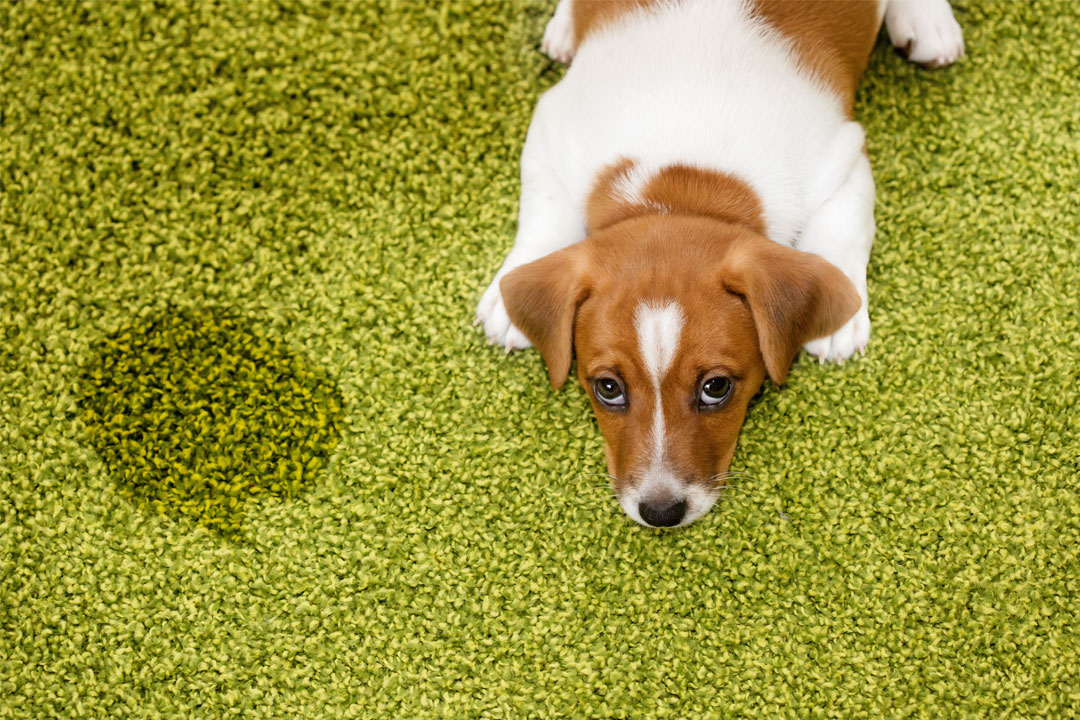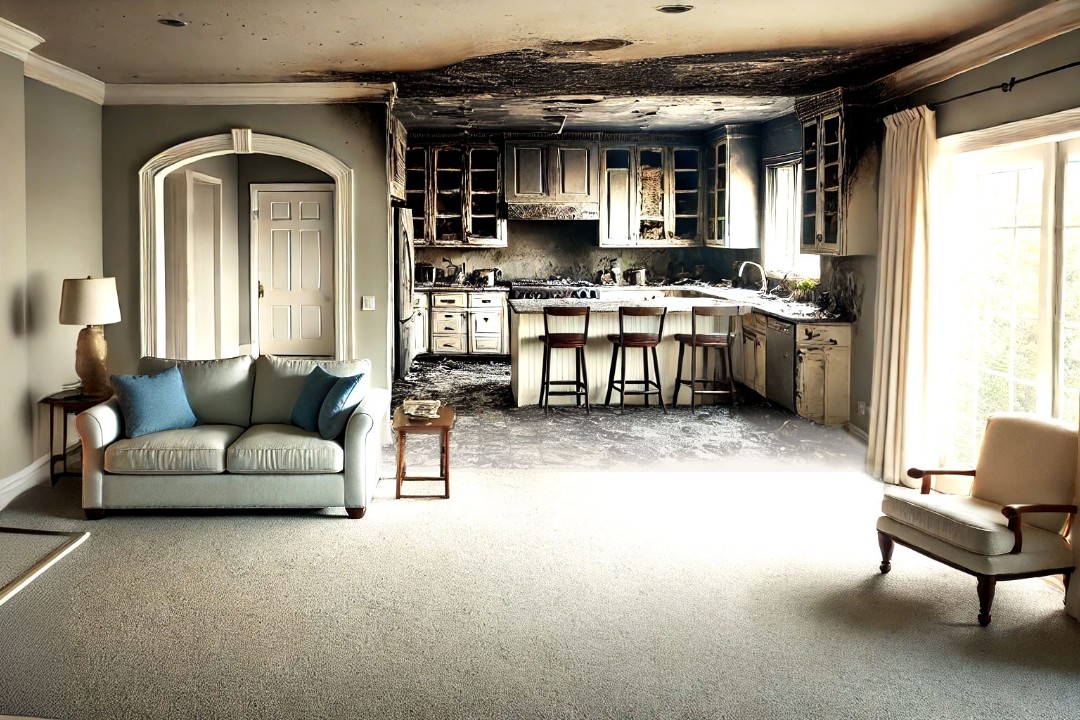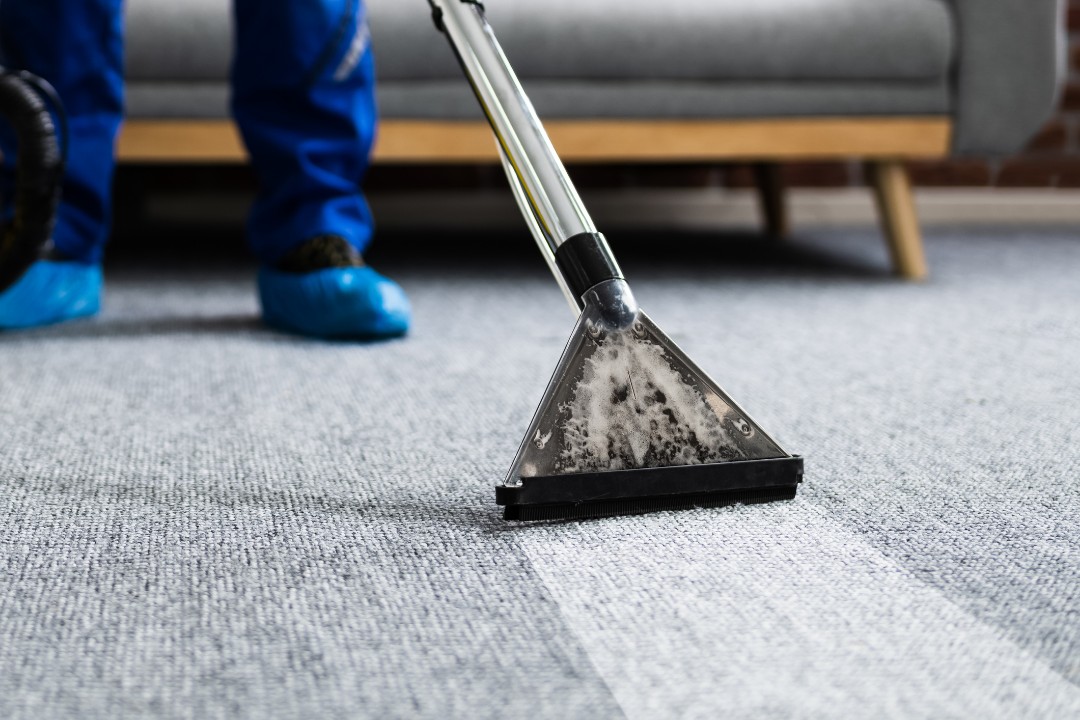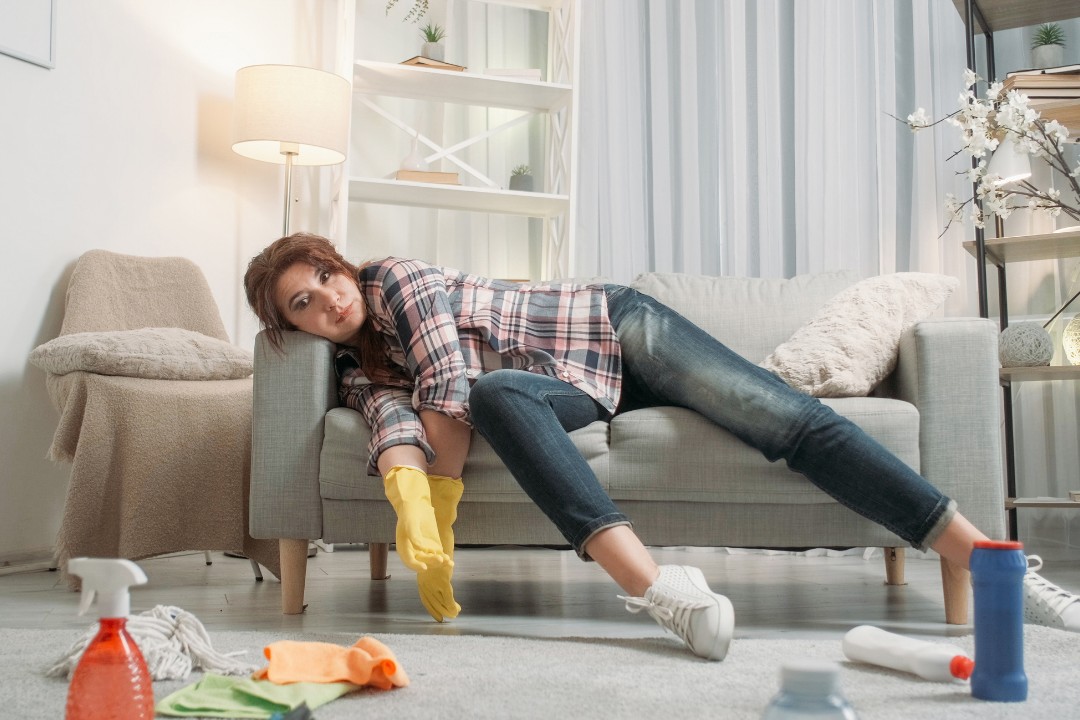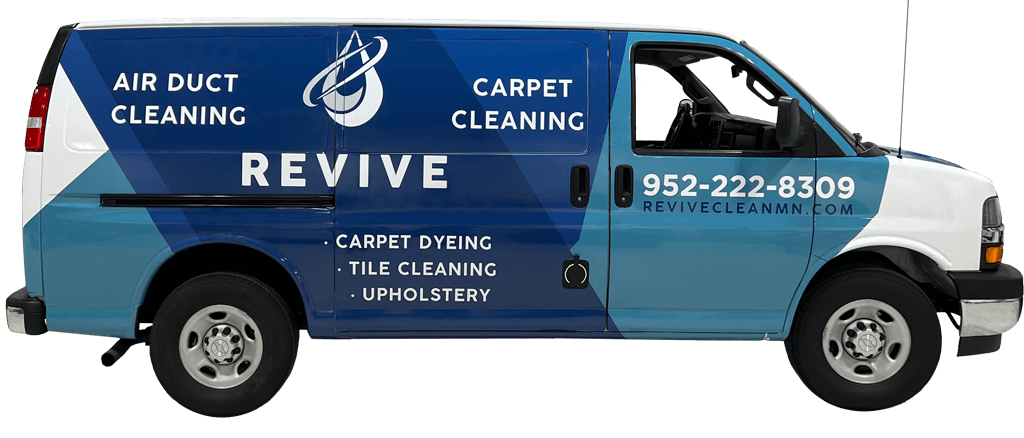Pet urine stains on carpets are one of the most frustrating problems for homeowners.
While surface cleaning may remove visible stains, the deeper issue lies in the carpet pad and subfloor, where odors and bacteria can linger.
Many DIY cleaning methods only address the top layer of the carpet, leaving the real problem untouched. If not properly cleaned, pet urine can cause long-term damage, and persistent smells, and even require complete carpet replacement.
How Pet Urine Affects Carpet, Padding, and Subfloor
When a pet has an accident, the urine doesn’t just sit on the surface— if your carpet isn’t protected, it seeps deep into the carpet fibers, soaks into the carpet pad, and, in severe cases, reaches the subfloor. The longer the urine remains, the worse the damage becomes.
Carpet fibers absorb moisture quickly, trapping odors and allowing bacteria to grow. Over time, urine bonds with the fibers, causing discoloration and a lingering ammonia smell.
Carpet padding is even more problematic because it acts like a sponge, absorbing liquid and holding onto odors long after the surface appears dry.
If the urine reaches the subfloor, whether plywood or concrete, it can result in permanent damage, requiring treatment to remove lingering smells.
One of the biggest misconceptions about pet urine stains is that a carpet may look clean after DIY treatment, but deep-seated odors remain. If urine has soaked into the pad or subfloor, traditional home remedies won’t be enough to eliminate the problem completely.
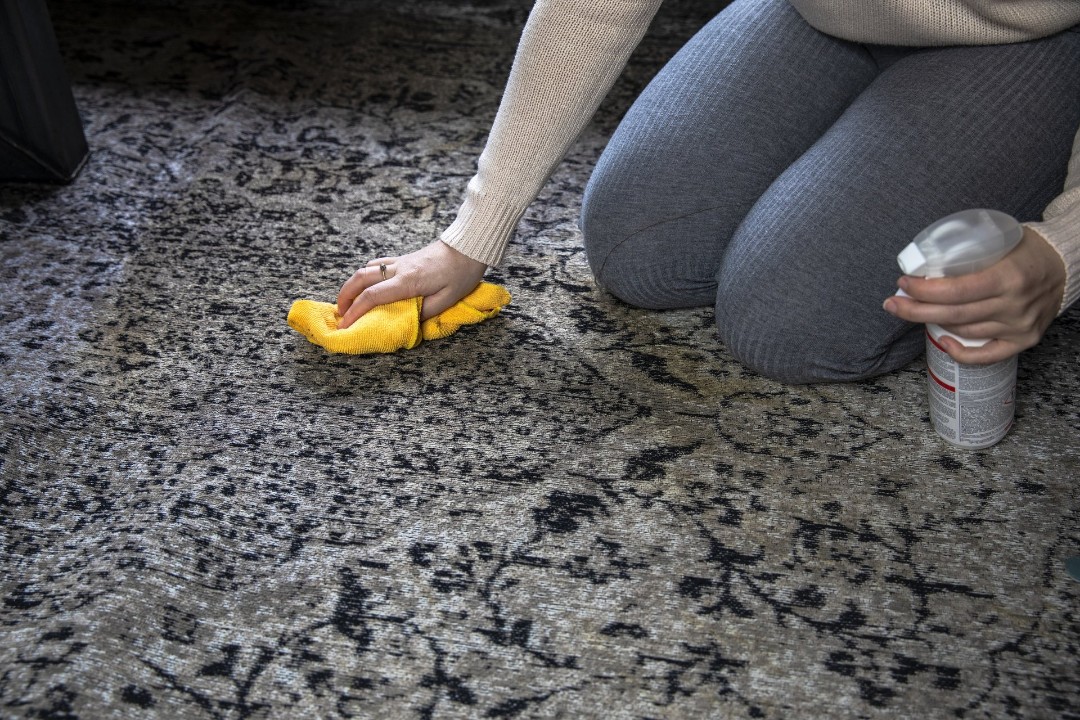
Common DIY Methods and Their Limitations
Many homeowners attempt DIY solutions to remove pet urine stains, but these methods often fail to reach the deeper problem. While some may temporarily improve the smell, they rarely eliminate the source of the odor.
- Baking Soda & Vinegar: While vinegar can neutralize some odors, it doesn’t remove the urine that has soaked into the pad. Baking soda may help absorb moisture but doesn’t eliminate the bacteria causing the smell.
- Hydrogen Peroxide & Dish Soap: This mixture can help break down urine proteins, but excessive use can bleach carpet fibers and weaken fabric.
- Enzymatic Cleaners: Products like Nature’s Miracle claim to break down urine molecules, but they require deep penetration to be effective. If the urine has already reached the subfloor, enzymatic cleaners won’t be enough.
- Steam Cleaning: Many people think steam cleaning will help, but the heat can actually set the stain and odor deeper into the carpet, making removal even harder.
Even with diligent cleaning, DIY solutions typically only address the surface of the carpet. The deep-seated urine in the pad and subfloor will continue to release odors, making it feel like the stain never fully goes away.
Why Professional Carpet Cleaning is the Best Solution
When pet urine soaks into the carpet pad and subfloor, professional carpet cleaning is often the only way to fully remove the stain and odor. Unlike DIY methods, professional cleaning reaches the deepest layers of the carpet and eliminates hidden urine deposits.
Professional carpet cleaners use high-powered extraction equipment to remove urine from both the carpet and pad, preventing future odors. Enzyme treatments are used to break down urine at a molecular level, eliminating the source of the smell rather than just masking it.
Professional cleaning also prevents the need for premature carpet replacement by restoring the fibers and removing embedded contaminants.
At Revive, we specialize in deep carpet cleaning for pet urine removal, ensuring your home is fresh and odor-free.
When and How to Address Subfloor Contamination
If urine has reached the subfloor, additional steps are necessary to remove the odor and prevent further damage. One of the biggest indicators of subfloor contamination is a persistent urine smell even after multiple carpet cleanings. If the odor keeps coming back, it likely means the urine has soaked beyond the carpet and pad.
In cases where urine has penetrated deeply, removing the affected carpet and pad may be necessary. Cleaning and disinfecting the subfloor with enzymatic cleaners or hydrogen peroxide can help, but if the odor persists, sealing the subfloor with a specialized primer like Zinsser shellac is often the best solution. This creates a barrier that locks in any remaining odor before installing a new carpet.
For severe contamination, replacing the carpet pad is often unavoidable. Installing a new pad along with a professionally cleaned carpet can restore freshness to the space while preventing the urine smell from resurfacing.
Preventing Future Pet Urine Stains and Odors
While accidents happen, homeowners can take proactive measures to minimize future stains and odors. Immediate cleanup is essential to prevent urine from soaking into the carpet’s deeper layers. Blotting up fresh accidents with paper towels and applying an enzymatic cleaner as soon as possible can help prevent long-term damage.
Regular professional carpet cleaning is another effective way to maintain freshness and extend the life of your carpet. Scheduling deep cleaning every 6-12 months can help remove buildup that home cleaning methods can’t reach.
Proper pet training also plays a crucial role in preventing repeat accidents. Using deterrent sprays and providing designated potty areas can reduce the likelihood of recurring stains. Additionally, applying protective coatings to carpets can help repel liquids and prevent urine from soaking into the fibers.

Let us Help You Remove Pet Urine from Carpet and Subfloors
Removing pet urine stains and odors requires more than just surface cleaning. DIY methods may temporarily reduce the smell, but they don’t reach the urine trapped in the carpet pad and subfloor. Professional carpet cleaning provides the best results by using deep extraction techniques and enzyme treatments to eliminate the problem at its source.
- Urine seeps into carpet fibers, padding, and even the subfloor, making DIY cleaning ineffective.
- Home remedies like baking soda and vinegar may help but rarely remove urine odors completely.
- Professional carpet cleaning is the most effective solution for removing deep-set urine stains and odors.
- If urine reaches the subfloor, sealing it with a primer may be necessary before installing a new carpet.
- Preventive measures like protective coatings, immediate cleanup, and routine carpet cleaning help maintain fresh carpets.
If you’re struggling with persistent pet urine stains, we offer expert carpet cleaning services designed to eliminate even the toughest pet odors. Contact us today to schedule a cleaning and restore your carpets to their original freshness!
